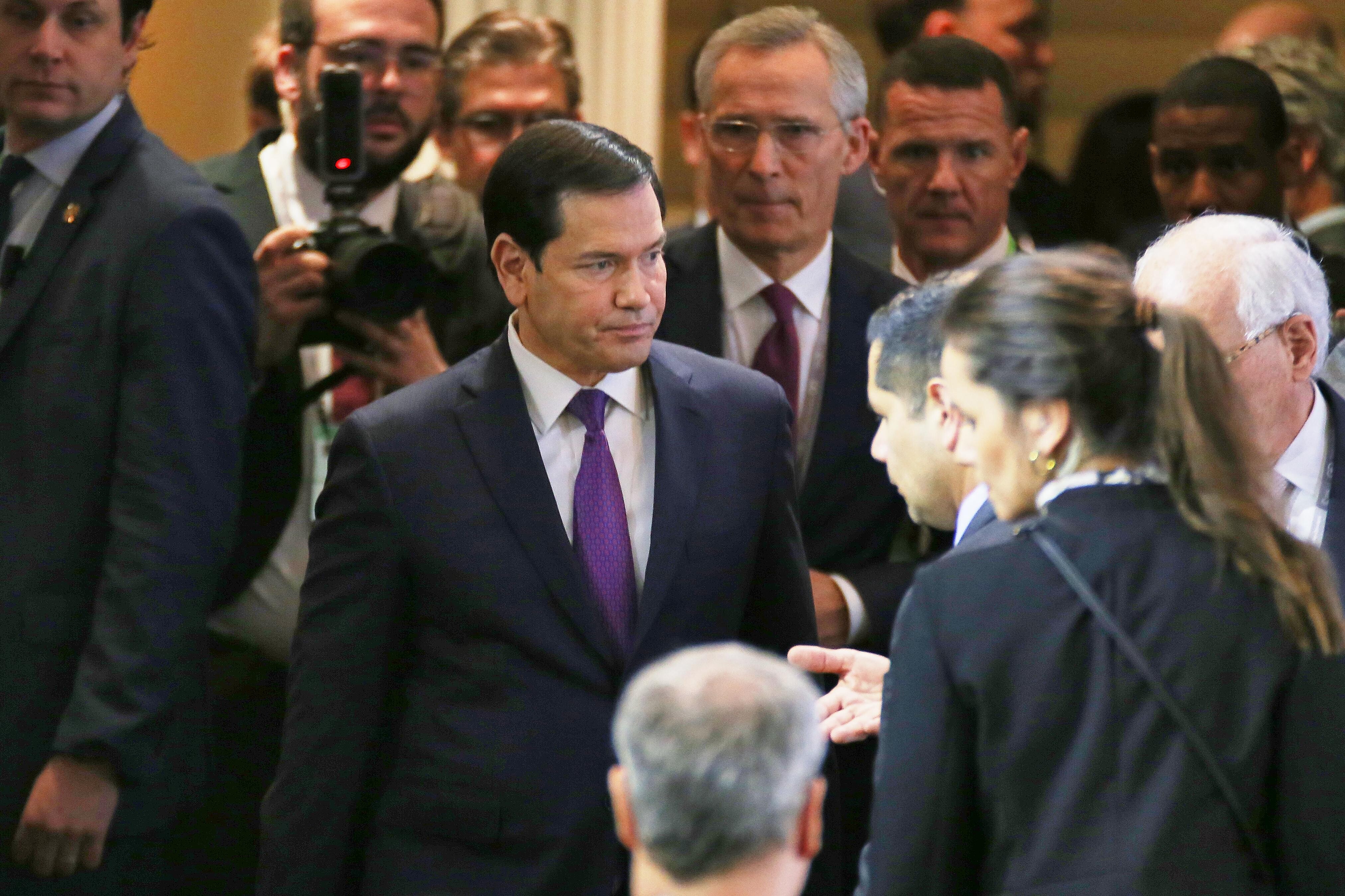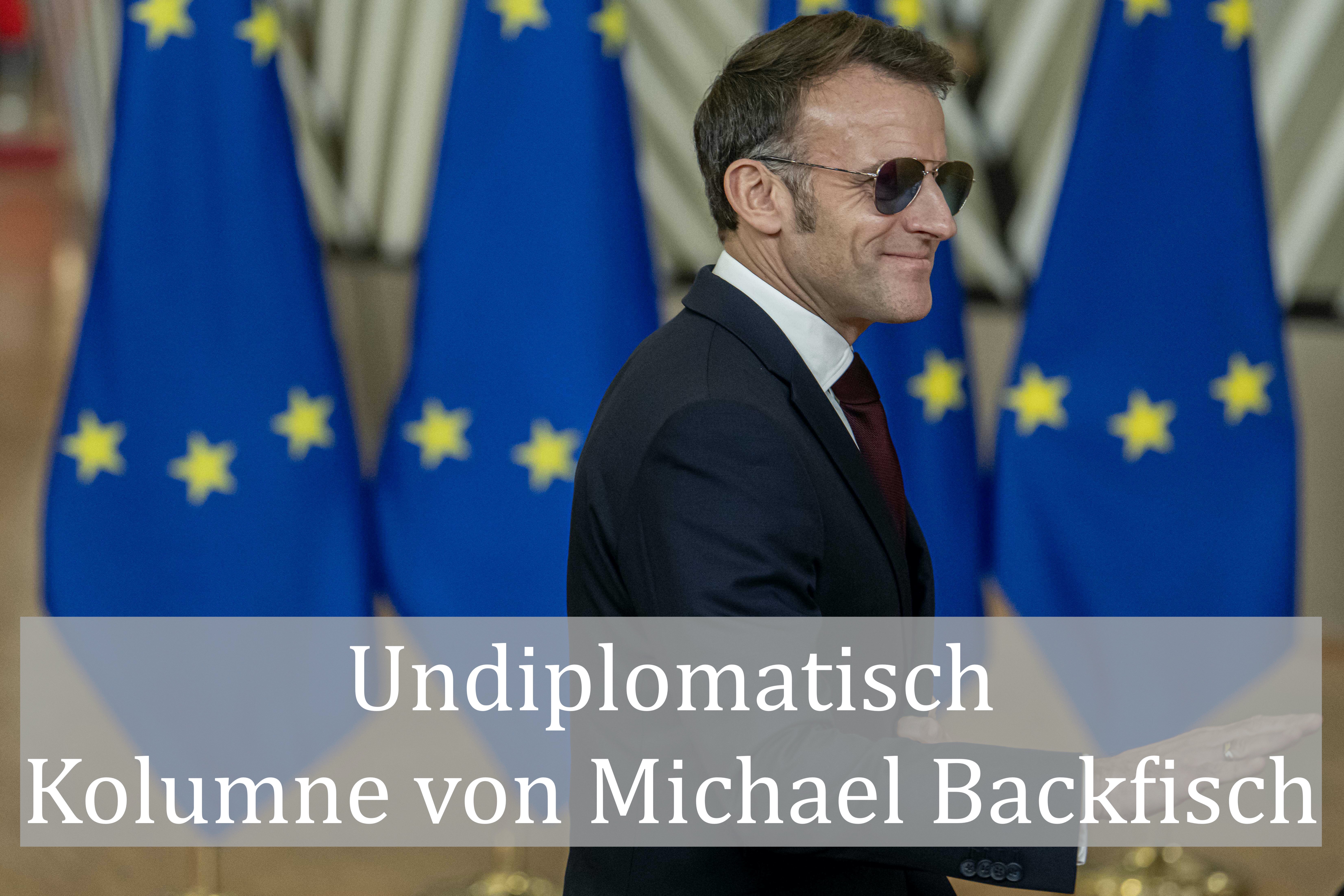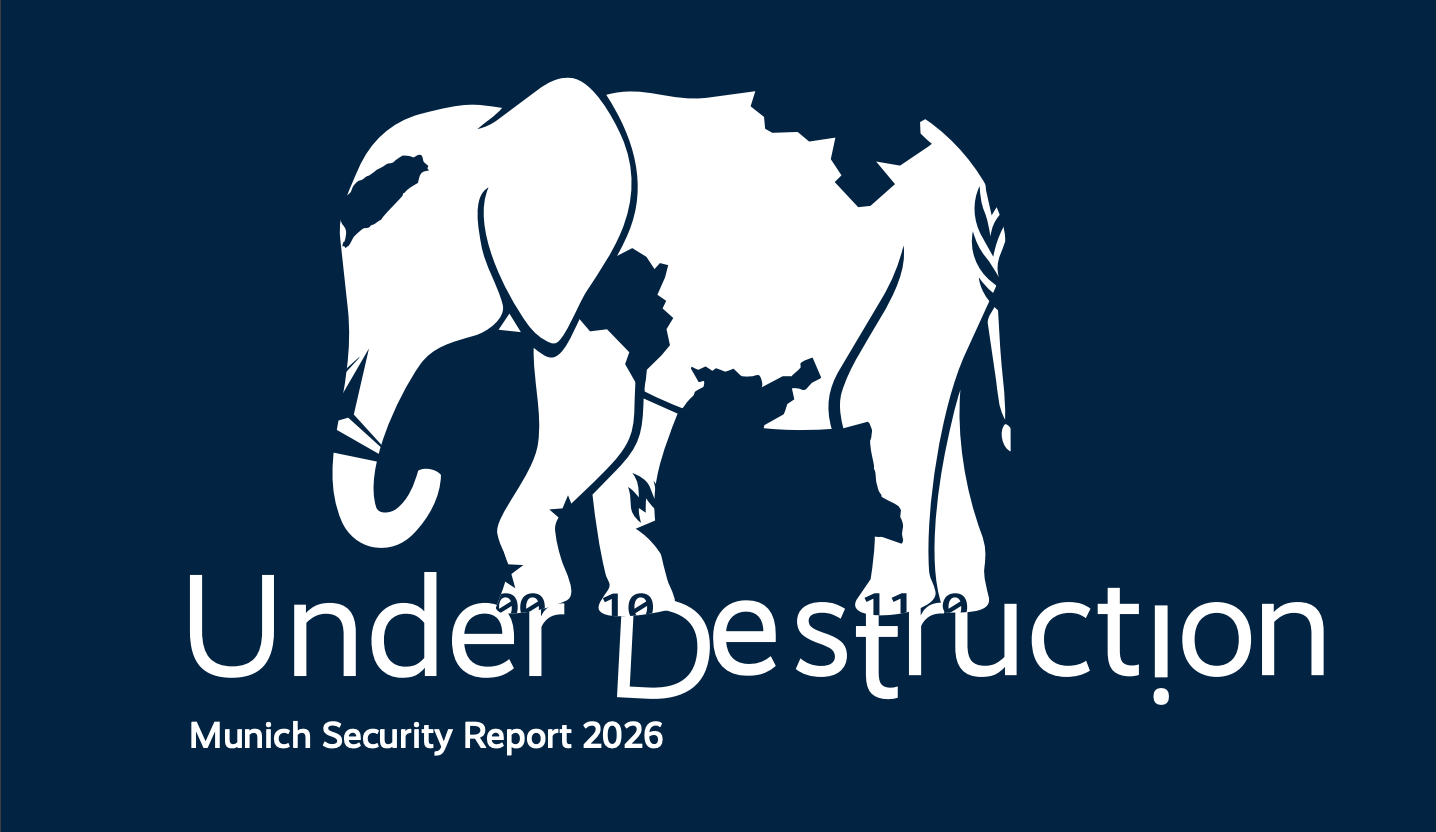diplo.news
The end of megaphone diplomacy
Column by Michael Backfisch

On November 18, a highly anticipated meeting will take place in Washington: US President Donald Trump will welcome Saudi Arabia's Crown Prince Mohammed bin Salman, the de facto ruler of the desert kingdom. Autocrats among themselves, one might say. It's all about buddy politics, they both like each other. Trump is drawn to the pomp and wealth of the Gulf monarchies. He also appreciates the strict top-down hierarchies that work there. Saudi, in turn, is impressed by the economic strength, political weight and military power of the United States.
But there are also hard-hitting interests at stake. Trump is hoping for up to a trillion dollars of Saudi investment in the country as part of his “America-First” policy. A kind of super injection for US companies to boost the economy. In addition, he still dreams of the Nobel Peace Prize. Trump has repeatedly emphasized that his plan to stabilize the Gaza Strip is only an intermediate step towards a “great peace in the Middle East.” He intends to reconcile the entire Arab world with Israel. In his first term of office, he achieved the “Abraham Accords” in 2020: First, the United Arab Emirates and Bahrain, then Morocco and Sudan established relations with Israel. If the oil and gas superpower Saudi Arabia were added, Trump could present himself on the international stage as a great mediator and conciliator. Crown Prince Mohammed bin Salman — also known by the initials MBS — should help him with this. That is why the president is giving the guest from Riyadh a glamorous welcome at the White House.
MBS, on the other hand, is about two things. He wants American nuclear technology to build and operate nuclear reactors. The energy produced should flow primarily into domestic consumption in order to be able to export more oil, which flushes additional money into the state coffers. Second, the Crown Prince is seeking a defense pact with the USA, including the supply of advanced weapons such as F-35 fighter jets. The major regional political opponent Iran is significantly weakened, but MBS is thinking of long-term containment.
The interests of the US and Saudi Arabia – and, incidentally, Israel – coincide when it comes to keeping the Islamic Republic in check. The crown prince's nuclear and military plans are likely to resonate with the US president. In return, MBS has already promised that his country will invest around $600 billion in the United States by 2028. Although this is below Trump's dream figure of one trillion dollars, it is still a considerable amount. The Saudis will put recognition of Israel on hold until a credible “road map” for the formation of an independent Palestinian state is presented. However, as long as Israeli Prime Minister Benjamin Netanyahu is dependent on right-wing extremist coalition partners, this remains a utopian project.
The convergence of interests between Trump and Mohammed bin Salman is astonishing. The question of human rights is completely ignored. The public executions or flogging of opposition figures that are common in the Kingdom play no role for the head of the White House. Not a word about the brutal murder of dissident journalist Jamal Kashoggi in 2018, which, according to the CIA, the Crown Prince had commissioned. Under US President Joe Biden, Saudi Arabia was still considered a pariah state. Biden saw America as the leader of democratic countries in dealing with the world's autocracies.
Tempi passati. In the Trump age of disruption, the principle applies: interest-led diplomacy first, human rights second. You don't have to fall completely into cynicism or nihilism. But the time has come to ask pressing questions: Is the EU, German politics, with its mantra of defending “Western values,” still on track? Doesn't the claim to be the last bastion of democracy and the rule of law worldwide now sound hollow? Hasn't the idea of sitting on a pedestal of moral superiority become obsolete?
Europe and Germany have ignored what their own interests are for too long. In 2019, at the start of her term as EU Commission President, Ursula von der Leyen had promised a “geopolitical commission.” The Community should assert itself in the “great power competition” that Europe must learn “the language of power,” she urged. This is pie-in-the-sky rhetoric that has yet to be backed up with concrete content. The interests of the EU remain a blank slate.
This also applies to Johann Wadephul. The Foreign Minister travels around the world but is silent about German interests. He sometimes implores the Islamist Hamas to lay down its arms. He sometimes presents himself as a standard-bearer of human rights. For example, it was unacceptable for Syrian refugees in Germany to return to their homes, as “hardly any people could really live worthily there,” said Wadephul recently in a suburb of Damascus. According to the United Nations Refugee Agency (UNHCR), he does not mention that more than one million Syrians from Lebanon, Jordan and Turkey have made their way home since December 2024. In particular, moral appeals, admonitions and concerns come from Wadephul. It sounds like an echo of his predecessor Annalena Baerbock. But megaphone diplomacy no longer fits into this era.




